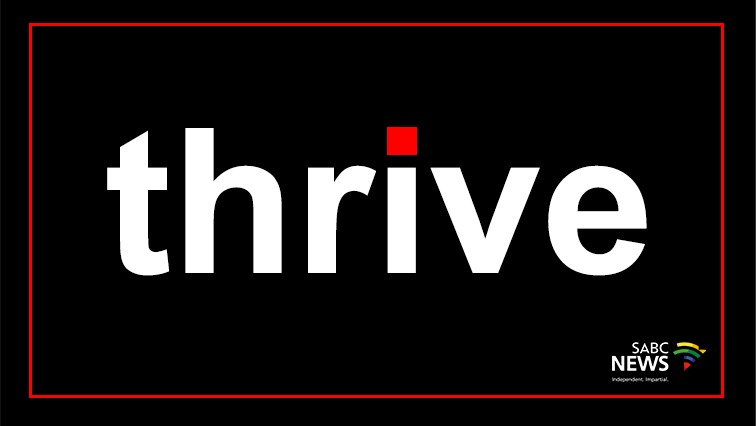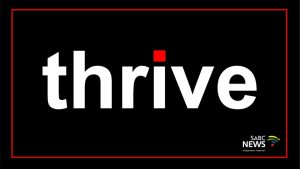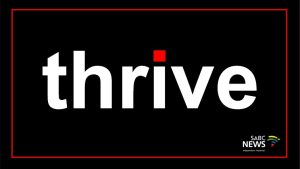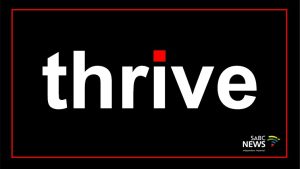South African National Deaf Association (SANDA) Programme Manager and football Club co-founder, Mosala Makhetha became a Deaf person after recovering from bacterial meningitis at nine-years-old.
He shares his journey with a disability, personal achievements, aspirations and challenges with SABC Digital News producer, Lebo Tshangela in this bi-weekly feature, Thrive.
According to the Centre for Deaf Studies at the University of Witwatersrand, there more than four million Deaf people in South Africa.
Makhetha, who is 49-years-old, was born on Grasmere Farm, south of Johannesburg, grew up in Stinkwater and currently resides in Mamelodi. He is the third born of five siblings.
Makhetha says he struggled to adapt to deafness and the transition from being a hearing person to being deaf person was extremely difficult and eventually he accepted being a Deaf person.
Education
In 1982, he attended Dominican School for the Deaf in Hammanskraal, where he learnt South African Sign Language (SASL).
Makhetha says, “It was a boarding school, there were many challenges during my teenage stage because most of our teachers did not know South African Sign Language resulted in poor teaching and I was so frustrated as I had to repeat school twice while my age grew. At 16 years old when I should have finished school, I was told to repeat in the same class the following year due to lack of next advanced class after the Grade 9, out of frustration, I became rebellious child and left school the following year.”
He attended PH Moraka High School and after matric he studied typing and office administration at Zodiac Commercial School and Human Resources Management at the University of South Africa.
Makhetha says he worked at University of Pretoria’s Academic Information Services (AIS) Library and studied several courses such as Project Management, Information Technology and Sport Law, all which he received qualifications.
“I faced enormous challenges especially with the unavailability of SASL interpreter services at selected classes during further education,” he adds.
Career
Makhetha says growing up, he wanted to be an anaesthesiologist, but could not due to many obstacles and the entry level for anaesthesiology requirements that he did not meet.
“I chose Human Resource Management because of working with people as I love working with people and helping them in their employment needs. I have a diploma in nursing and patient care and exploring way to study further for BSc if given the chance.”
As a Programme Manager for SANDA, he says his day starts at 8 PM and he collaboratively plans his day, and makes sure that the most urgent work gets done first.
“It involves liaising with many people, attending several meetings, physical and virtual, and doing lots of work as a Programme Manager at SANDA. It is a lot more challenging and exhaustive. At SANDA, we have several projects and programmes, most of them need funding to be implemented and developed realistically.”
Makhetha says he enjoys traveling to attractive places in South Africa, watching television and reading books.
“I also like sport activities and I am in Deaf Sport South Africa as a volunteer Director, I drive the organisation and ensure its development. I co-founded Deaf Cats Football Club that is well known in Deaf and hearing community for its recruitment and achievement. We currently have sport activities all over South Africa.”
Challenges
He says as a Deaf person, like many other Deaf people, he faces enormous challenges everyday especially communication barriers.
“Worst is the insurance companies and access to information, insurance for example usually want to communicate with us by telephone directly even when we can’t hear, their ignorance insists that we. Deaf people must answer ourselves and not third party due to privacy and sensitive information.”
Makhetha says, “When a Deaf person drive alone in the remote area and the vehicle experience mechanical breakdown, he or she will try to text to the insurance, but the ignorant insurance representatives will call back even when the person is Deaf and completely can’t hear. She or he will never get assistance and mind you; we pay the same insurance every month but are not being assisted when we desperately need assistance, that is unfair. When there is an accident involving a Deaf person, chances are that she or he will be abused as she or he can’t hear what is being said first and she or he will be heard secondary and being accused as the fault one all because she or he can’t hear or express her/his story equally.”
He says the challenge to lack of access to information is that South African Broadcasting Corporation (SABC) will not provide full SASL interpreters and if provided, it is always small at the bottom corner.
“You can imagine if our television screen is small with the size of a laptop, the SASL interpreter on the bottom corner will also be extra small causing us to suffer with information missing. Hearing people can hear and want to watch while we can’t hear but can only listen our language through watching the SASL interpreters. Why is it difficult for SABC to implement a dual vision with the same size for presenter and SASL interpreter for us to have a comfortable viewing? Still, we are forced to pay for our television licence, especially when we try to buy a new tv.”
Crime
Makhetha says, “Reporting a crime at South African Police Service, especially gender-based violence, rape, theft, murder and burglar are the hardest things we face and ends up not going there because we know that we won’t get attention that we deserve.”
“Violent crime in South Africa is increasing rapidly and it is a serious issue. We have developed video remote communication (Virecom) as part of 4IR whilst moving with rapidly rising technology. Its aim to minimise communication barrier at most service government, we need people to believe in its capability and it is completely a realistic solution to many communication problems at SAPS, Courts, Hospitals, Clinics, SARS, Banks and municipality walk-in centres. In court too, we do not get fair justice due to communication barrier. The list is extremely long so I will say just the above.”
He says nothing much changed in the past 28 years, except a few changes happened specially to hearing people but to Deaf people it is still the same or getting worse compared to older days.
“We do not get sport attention similar to the way hearing people are afforded but we pay tax and are DSTV subscription.”
Sign language
“I am so happy and can’t wait to hear the announcement. It is long overdue, and we have been waiting for a long time. This will open many opportunities for us all.”
However, he says, “South African Sign Language is still not official recognised, and we kept getting promises that it is going to be official soon, soon, soon many years passed up to now. Lately we have been assured that it will soon be officially recognised as the 12th language and we are still waiting, we are hopeful after many years of lobbying and advocating.”
COVID-19
Makhetha says COVID-19 has impacted negatively on their ability to communicate with face masks and there was no funding allocated to SANDA for that purpose.
“Many people including Deaf people lost their loved ones, employment as a result, some of our affiliate organisations closed due to lack of funding, donors dried. Some Deaf people survived through hard times.”
He says his goals for the future is to have a Deaf TVET College because many Deaf people who finish matric find it difficult to further their education in the post-school.
“This will ensure that Deaf people are employed and become productive members of the society after studying in an equal basis. Deaf people should be prioritised when it comes to starting a business and get more information on how to get government grants from these available government agencies.”
Related: PODCAST: THRIVE Part 1: Former Western Cape councillor with paraplegia shares his story
Related: PODCAST: THRIVE Part 3: Former JSE employee with paraplegia shares her story
Related: PODCAST: THRIVE Part 4: Single amputee Randi Ndele shares his story
Related: PODCAST: THRIVE Part 7: Journalist and para-athlete star Palesa Manaleng shares her story






